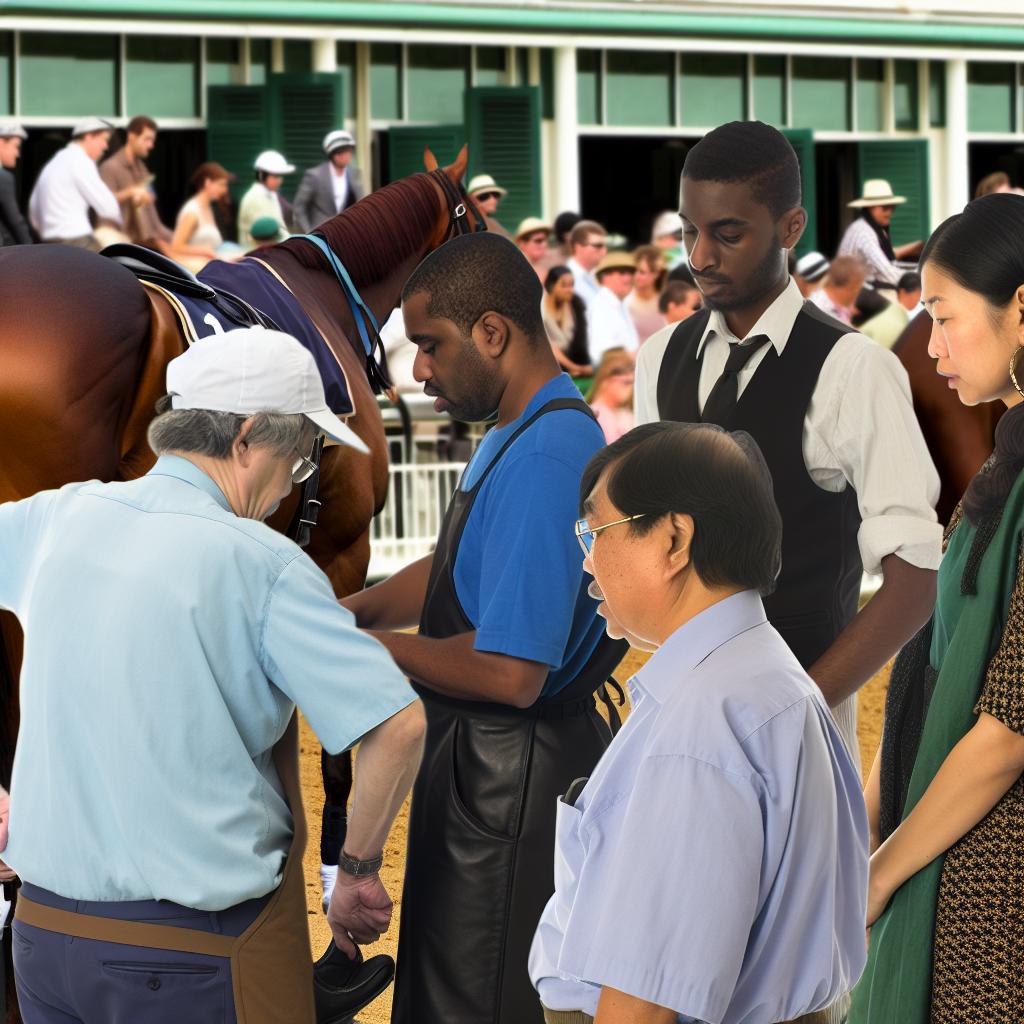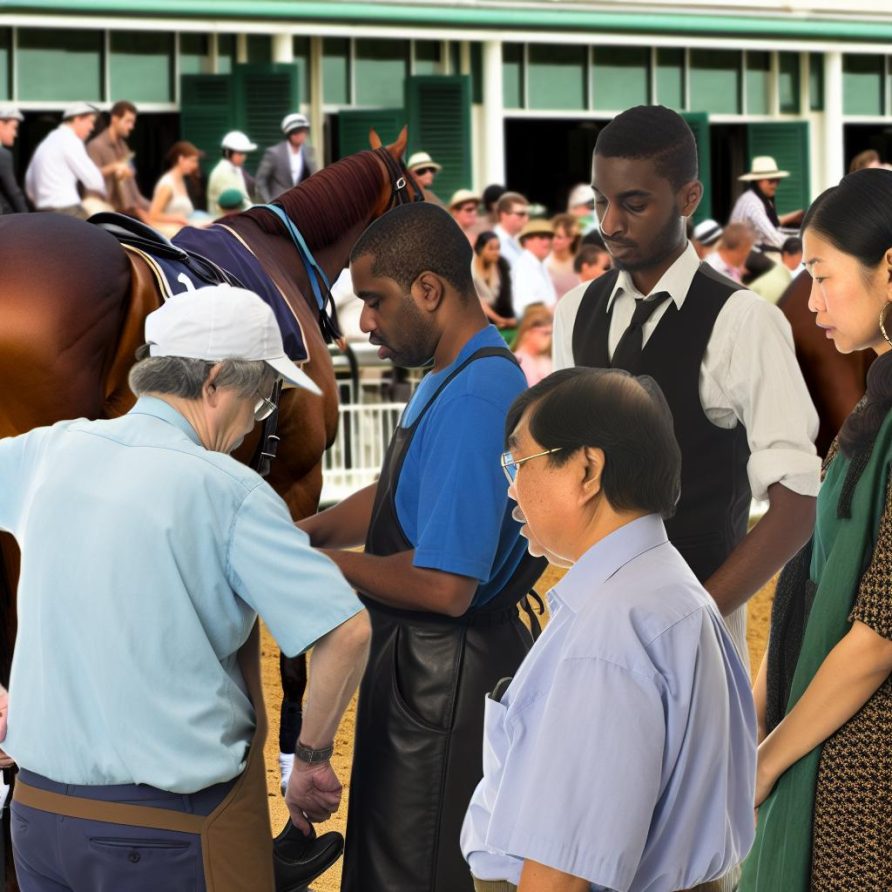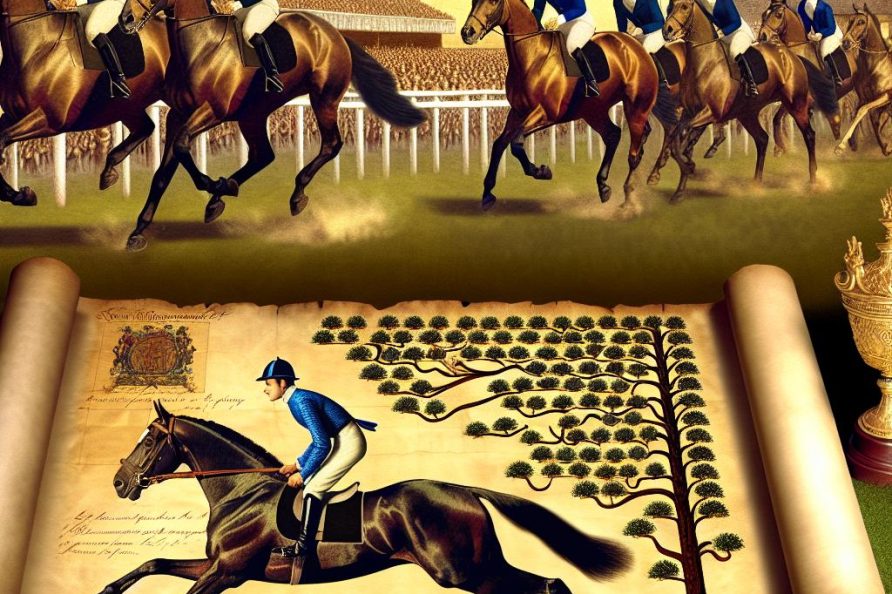The Crucial Role of Trainers in Horse Racing
In horse racing, the figure of the trainer is essential for the development and performance of racehorses. Trainers are tasked with the overarching responsibility of managing and conditioning the horses under their supervision, ensuring that every horse achieves its highest potential while competing on the race track.
Responsibilities of a Horse Trainer
Horse trainers have a multitude of duties, each paramount to the horse’s success in the racing field. These tasks are varied and comprehensive, bridging the gap from everyday care to specialized training protocols.
Daily Care and Maintenance: One of the cornerstones of a trainer’s responsibilities is to maintain the daily care of the horses. This involves ensuring that horses receive proper feeding, grooming, and regular exercise. Trainers also closely observe the horses’ health, collaborating with veterinarians when addressing medical issues. The management of proper nutrition and hydration is also a critical component overseen by trainers, as these factors substantially impact a horse’s health and performance capacity.
Training Regimens: Designing and implementing effective training regimens tailored to individual horses are crucial areas in a trainer’s job. These regimens include exercises that target building physical strength, enhancing speed, and improving endurance. Trainers employ various techniques to boost the horse’s performance during races, focusing on optimizing every aspect of the horse’s athletic capabilities.
Strategic Planning: An indispensable part of a trainer’s role is to strategize which races are most suitable for each horse. This involves a nuanced understanding of each horse’s abilities and recognizing their potential. Trainers analyze race conditions meticulously and plan race entries judiciously to maximize the chances for victory and success in each competition.
Collaboration with Jockeys and Owners: Communication plays a critical role in a trainer’s duties. Trainers need to coordinate with jockeys to refine race strategies and provide them with insights related to the horse’s behavior and performance tendencies. Keeping horse owners abreast of their horse’s progress, as well as transparent communication about any significant decisions, is also paramount in fostering trust and collaboration.
Importance of Compensation and Success
A trainer’s standing and achievements in the horse racing industry are significantly shaped by their record of accomplishments, which is directly linked to the performance of the horses they train. Compensatory structures for trainers often involve a combination of a base salary coupled with a percentage of the winnings. Such arrangements emphasize the need for successful outcomes in race competitions.
Career Longevity: Trainers who consistently yield successful results typically enjoy prolonged and prosperous careers in the racing domain, gradually constructing a portfolio filled with winning horses which further boost their professional credibility and status within the industry.
The Significance of Experience
Experience is a fundamental pillar influencing a trainer’s proficiency and effectiveness. Trainers who possess extensive knowledge about equine behavior, combined with a deep understanding of racing mechanics, are better primed to formulate successful racing strategies. The path to becoming a seasoned trainer often begins with an apprenticeship, allowing novices to assimilate the subtleties and complexities inherent in the profession before managing their own stables.
Those interested in exploring a deeper understanding of the role trainers play in horse racing can find a wealth of resources and educational courses that delve into this field. For further insight into the world of horse racing and the instrumental role performed by trainers, click here for more information.





